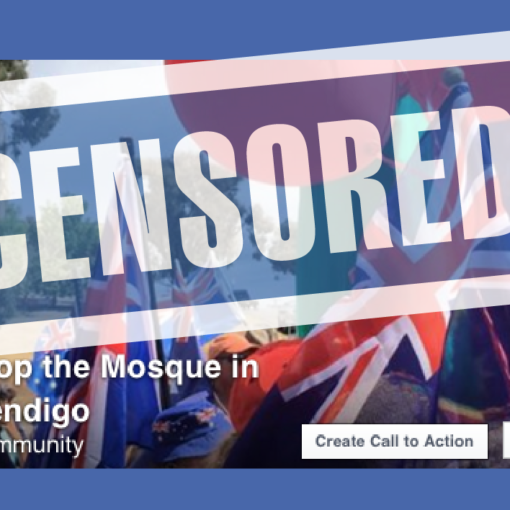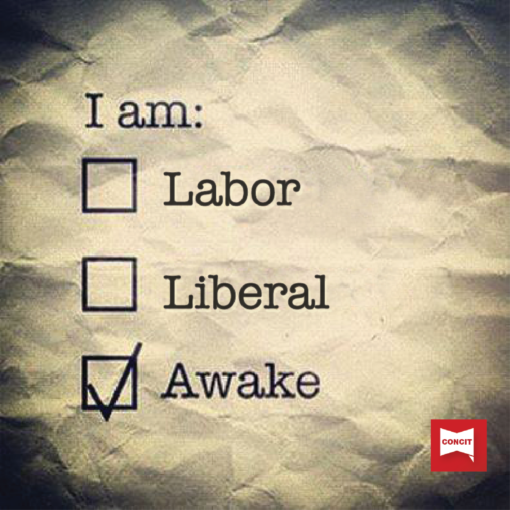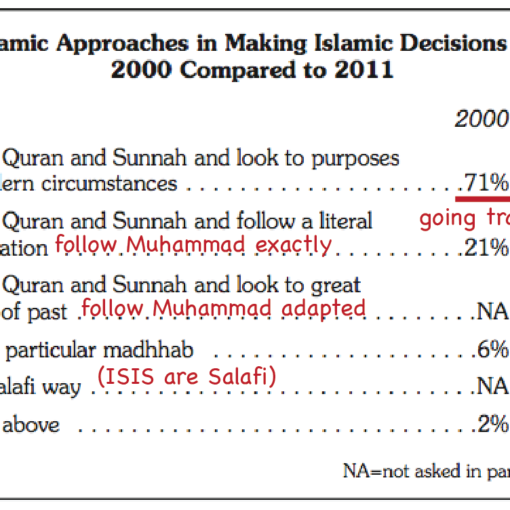 Context:
Context:
Islam, Allah and the Prophet Muhammad
Muhammad is the prophet of Islam who through supernatural encounters with an angel called Gabriel at the age of 40, began delivering the words and commands of Allah, originally the name of the God of Arabia, almost until he died. These were later captured in the Koran (Qu’ran). The Koran also recognises Abraham as the father of all Muslims and Jesus as a Muslim prophet. Muhammad is considered the final prophet and the Koran as the final correct sacred text.
For 10 years while living in Mecca, Muhammad was for the most part ridiculed and persecuted for his new system of beliefs. In 622 he with his followers numbering less than 200 migrated to Medina where he established his new headquarters. This migration date sets the start of the Islamic calendar.
It was in Medina in 627 under the instructions from Angel Gabriel that Muhammad destroyed an entire Jewish tribe beheading 600 men and enslaving the women and children.
For the next ten years, from his Medina mosque Muhammad wielded a campaign of terror that eventually brought all of Arabia including Mecca under his control and in submission to Islam.
The last fews years of his life were spent warring in Syria against the Christians. After his death his successors carried on conquering the world with a further 548 campaigns into Europe. Eventually they were forced back centuries later by the Crusades.
Muhammad as the Prophet of Islam is looked upon as “the perfect man”. His ways, words and stories have been collected into another set of books called Hadiths and carry as much weight as the Koran for Muslims. Together the “dos” and “don’ts” of both the Hadiths and the Koran have generated into a sacred path of law and life, called “Shariah”. Shariah Law governs the life, government and culture of Muslims across the world, on an individual level and at a state level. It is a totalitarian system communal living that Muslims follow where ever they settle.
Islam itself means a ‘submission’ or ‘surrender’. The promise of peace comes only when all peoples of the world finally submit to Islam and Shariah Law.
The Islamic Mindset:
Believers and non-Believers: Islam’s world-view divides people up into believers and non-believers. Each Muslim belongs to the nation of Islam called the “Ummah” and is called personally by the Koran to protect it. The penalty for leaving (apostasy), calls for the person’s death and the dispersion of assets back to the community.
There are 527 verses in the Koran despising unbelievers. Believers may never hold a “non-believer” equal to a believer and while the Koran may encourage friendliness it makes it clear that there must never be any true closeness of the heart. The same moral flexibility applies to words. Lying to non believers is justifiable if the greater cause of Islam is furthered. The value of a non-believer’s life is worth half that of a believer and a non believing woman half that again. Criticising Islam or Muhammad is called “blasphemy” and carries a death penalty.
Marriage : Muhammad is considered the perfect man, and his ways are followed by the men of Islam. His second wife Aisha was only six when he married her—he was 54. He consummated the marriage when she was nine. Consequently Islam sanctions prepubescent marriages although socially it is recommended that a husband should wait until the female has reached puberty. Muhammad also had nearly 30 wives and concubines so, Islam also allows men to marry up to four wives of any age and obtain temporary marriages from Imams to allow its men additional prostitutes and concubines. Muhammad also married his first cousin, a practice which is still widely practiced by followers of Islam today, with resulting inbreeding issues such as deformity and lowering of IQ.
Women in Islam: The Koran maintains that the male is superior to the female. It also stipulates that she can only receive half the inheritance of any male. The Koran also states that women are also intellectually and emotionally inferior to men, so she remains under the supervision of males. The value of female’s testimony in court including expert witnesses (doctors etc) is half that of a male (two womens testimony equals one male). In the case of rape no amount of female testimony is considered at law valid against a man.
A wife must meet her husband’s sexual desires else Shariah Law allows her to be beaten for being “rebellious”. Females may not leave the house, sit in mixed company, have certain types of surgery, open bank accounts, or travel without the permission of the husband, son or family male member.
Among strangers, females above 11 years old must be covered by the Hijab to protect “the chastity of men who might see her”. Rape is a regarded as a female’s fault for inciting a male’s desire, unless she can provide four male witnesses to prove she was indeed “raped”. Otherwise she is lashed or stoned for adultery according to Shariah Law. Honour killings usually result from the dishonour that a rape or improper female behaviour brings to a family. There is no law against parents killing their children. A man’s privileges are foremost in the custody of children. Generally the custody of children transfers to the father at 3 for a male and 7 for a female. Fathers can marry off their prepubescent females for a set dowry at any age.
Female “circumcision” is still prevalent as husbands will pay a higher bride price for these girls. Circumcision is often mandatory for both sexes under Shariah Law. In Eqypt for example over 90% of the female population have been circumcised.
The prescribed inequality of women in Islam by the koran has become such a sticking point that rather than continue with the 1942 UN Charter of Human Rights, 58 Islamic countries have now became signatories to the 1990 Cairo Islamic Charter of Human Rights which adheres to sexual inequality principles contained in Sharia Law and denies the right of their females to marry outside of Islam.
Halal and Haram: ‘Halal’ is defined as permissible in Shariah Law and ‘Haram’ as those things that are prohibited. It relates to food, occupations and environment. What is Haram (prohibited) in Islam are such things as alcohol, gambling, smoking, drinking, pork, taking photos of people, cartoon renderings of Muhammad, listening to music, being in mixed company except with family, magic, men wearing silk, tattoos, any form of art, playing games like chess, movies unless they further Islam or education. This list is by no way complete.
The issue in the west concerns employment. A Muslim may not be involved in any activity that supports or involves anything that is regarded as Haram. For example a delivery driver may not deliver a pizza with pork on it or a container of Haram food, or be involved in media that show photos of people, or do IT support for a company involved in gambling. This leaves limited scope for employment and increased reliance on community support.
Jihad is the struggle a Muslim must make in order to further the “cause of Islam” which is the elimination of Unbelief in the world.
“True believers” leave home and give up their life and possession for this cause.
The enemies of Islam are “infidels” that refuse to convert to Islam, including apostates, atheists, Christians and Jews.
In Muslim controlled environments all infidels must either pay an onerous Jizya tax to live, convert or be killed.
Zakat: Muslims must pay a 2.5% “Zakat” on all earnings to further the cause of Allah. There are eight areas that must be funded in the community and prescribed by the Koran. One area is for the promotion of Islam and jihad. Much of the money funding Pro-Islam university courses, Islamic “cultural” centres and mosques comes from the Zakat payments of wealthy Saudi Nations. Saudis also subscribe to a fundamental Wahhabism form of Islam and Shariah, and export this with their money.
The ultimate aim of Islam: is for the entire world to be submitted to Islam. In Islamic thought the world is divided into two parts, which are Dar-al-Harb (the house of War) and Dar-al-Islam (the abode of Islam). The west sits in the House of War.
Believers in the West have a problem, for they cannot separate religion and politics–they are one. Accepting the laws of any non-Muslim land where they might conflict with Shariah Law and the rulings delivered by Allah is impossible for Muslims. Allah’s law sits above any man-made laws. Muslims regard democracy as a man-made system of government “by the people for the people”. As Allah reigns above all peoples, Muslims literally cannot recognise this man made system of government nor submit to the laws of democracy and remain Muslim. For example Allah has determined Muslim males are superior to everyone. In a democracy everyone is equal making integration into any non-Islamic nation under a democratic system of government and law not possible. As a result pluralism (two peoples and twosets of laws and governance) develops.
What we continue to witness in the west as a result of its policy of multiculturalism is two systems of government (Shariah and Democracy) in the same land. Muslims congregate in an area or town and this pluralism continues until the Muslim enclaves grow to such a majority that they form their own councils, state and eventually become a separate country with a complete system of government under Shariah Law. Meanwhile the host country that invited them in, has lost territory.
Taking Territory: The mosque is the cultural heartbeat of the community. It educates and regulates Muslim life and disperses Zakats. Presence of a mosque in a country or town signals an Islamic influence over that area. Mosques also belong permanently to the community of Islam the “Ummah”.
We see churches in a completely different light. Churches are places of worship and congregation and can be sold. Not so for Islam. Mosques take territory. This is a hard concept for the west to understand. For this reason mosques choose to have height or space advantage. Mosques intentionally build next to churches or take over existing churches as a symbol of conquest. Often they are strategically named like the Cordoba Mosque near Ground Zero—after the greatest Muslim conquest of a highly civilised society. (Spain). Understanding this concept of territory and conquest is very important in understanding the Muslim mindset. Muhammad was also a warlord and spent the latter part of his life in conquest of lands and conquered Arabia.
Mosques teach Shariah Law and stake a claim in their suburb and town for Islam. That is why an enclave follows its introduction. In the UK now 86 councils are under Shariah Law. Hundreds of Islamic suburbs in Germany, many in France and UK are “no-go” zones for both the non-Muslim public and the police. As a result of these enclaves Prime Minsters of UK, France, Germany and the Netherlands have officially declared that Multiculturalism has “failed” due to Islam’s refusal to integrate.
Conclusion:
The values of Islam encourage intolerance, inequality and a belief in a master gender, master race and master religion. The values we have outlined on Islam are not Australian values—yet these are the values espoused from all mosques, as these are the global values of Islam.
While there maybe secular Muslims who are good members of the community, others who are driven by the ideology of Islam will be opposed to democracy and our Australian way of life.
By allowing a mosque to be built in any city we would be inviting culturally competing values and a spirit of non integration because of the teachings of Islam. This will over time undo the social cohesion of our community—just as it has in every western country that has opened its doors to Islam through multiculturalism.
Islam is just not complimentary to our Western our way of life and we need your voice to bring about a change to its advance into Australia.



